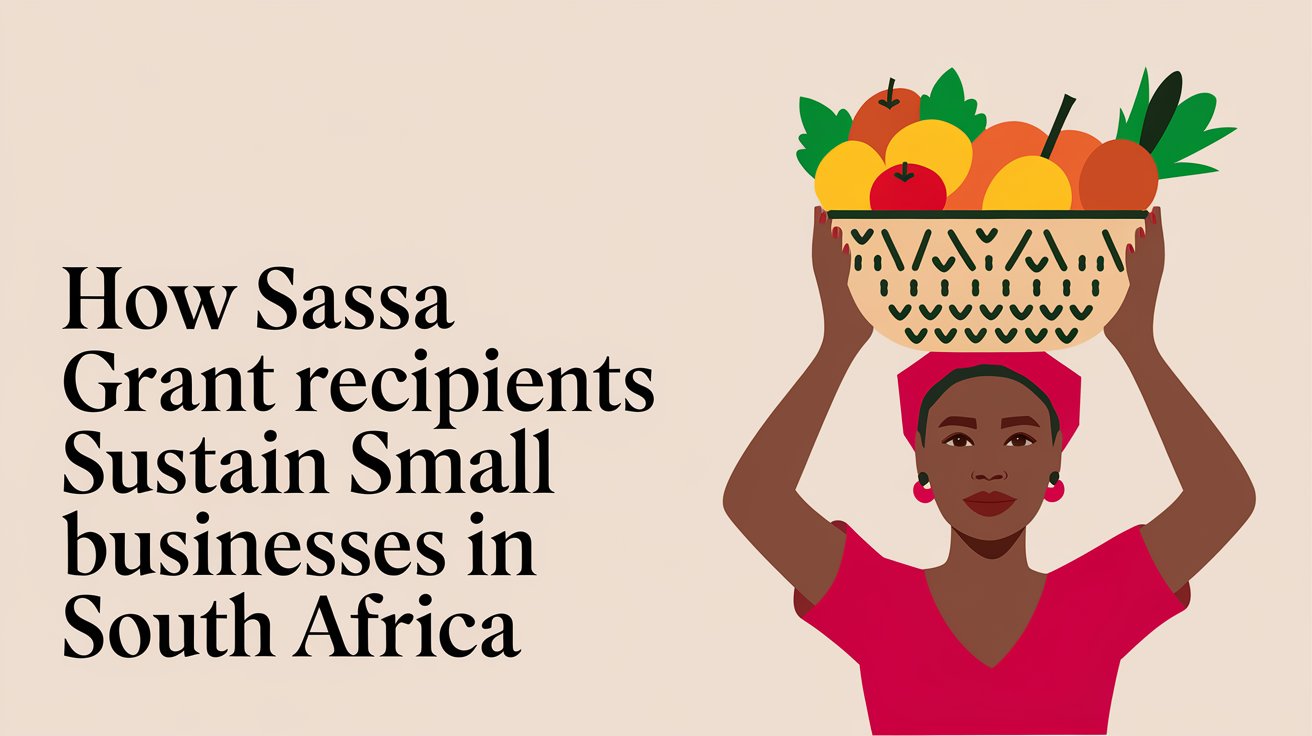Title:
South Africa's social grant system, administered by the South African Social Security Agency (SASSA), plays a vital role in providing financial support to millions of citizens. While the primary aim of these grants is to reduce poverty and support vulnerable groups, their economic impact extends beyond recipients. In many communities, especially in townships and rural areas, small business owners rely heavily on grant beneficiaries for survival. This article explores real-life case studies of small business owners who depend on SASSA grant recipients as their primary customers.
Case Study 1 Spaza Shop Owner in Soweto: For Thabo Mokoena, a spaza shop owner in Soweto, SASSA grant days are the busiest in his store. "When grants are paid, my sales double or even triple," says Mokoena, who has been running his business for over ten years. His customers, mainly pensioners, parents receiving the Child Support Grant, and unemployed youth benefiting from the Social Relief of Distress (SRD) grant, come to buy groceries, airtime, and household essentials.
Mokoena has structured his business around SASSA payment cycles. "I know that the first week of the month will be my best. I ensure my shelves are fully stocked before the grant payments are made." However, he also acknowledges the challenge of fluctuating income. "After the first two weeks, sales drop significantly because customers have run out of money. This makes it difficult to maintain consistent cash flow."
Despite the challenges, Mokoena appreciates the indirect economic support provided by the grant system. "If grants were to stop, my business would collapse. Many of my customers have no other income."
Case Study 2 A Street Vendor in Limpopo: Maria Ngobeni, a street vendor in Limpopo, sells fresh vegetables, snacks, and second-hand clothes in her community. Most of her customers are grandmothers who receive the Older Person’s Grant and mothers benefiting from the Child Support Grant. "These grants are essential for my business. Many people in my area depend on them for their monthly shopping. If there is any delay in payments, I feel it immediately because my sales drop."
Ngobeni also shares how she adjusts her prices based on her customers’ purchasing power. "I try to keep my prices low so that people can afford to buy from me. If I increase them too much, I lose business because my customers have limited money."
One challenge she faces is competition from supermarkets that offer promotions around grant payment dates. "Many people rush to supermarkets on payday, which sometimes affects my sales. However, some still come back later in the month when their money runs out because I allow them to buy on credit."
Case Study 3 A Fast Food Business in the Eastern Cape: In Mthatha, Eastern Cape, Sipho Ndlela runs a small takeaway business selling vetkoek, fried fish, and pap with meat. "Most of my customers are people who receive grants, especially the unemployed youth and elderly pensioners," he explains. "On grant days, my sales are excellent. People want to treat themselves, so they buy fast food instead of cooking at home."
Ndlela's business thrives on grant days, but he also experiences low sales towards the end of the month. "I have learned to manage my stock carefully so that I don’t end up with too much unsold food."
To adapt, Ndlela has started offering discounts at the end of the month. "When people run out of money, I drop my prices a little so they can still buy something. This helps me maintain some level of income instead of making no sales at all."
Case Study 4 A Salon Owner in Mpumalanga: Beauty salons and barbershops also benefit from SASSA grants. Lerato Dlamini, who runs a small salon in Mpumalanga, says that grant recipients, especially women receiving the Child Support Grant, form the majority of her customers. "After they receive their grants, many women come in for hairdos, braiding, or just basic grooming."
Dlamini has noticed a pattern in spending habits. "At the beginning of the month, business is booming, but towards the end, things slow down. That’s why I offer special deals during grant week to attract more customers."
She believes that SASSA grants help sustain small service-based businesses like hers. "Without grants, many people would not have the money to spend on personal care. If grant payments are delayed or reduced, I see an immediate drop in my income."
The Bigger Economic Picture Economists argue that SASSA grants are not just a social welfare tool but also an economic driver for informal and small businesses. According to research, every rand spent on a social grant circulates within the economy, benefiting multiple people beyond just the recipient.
However, some experts warn of over-reliance on grant money. "While these grants provide essential support for small businesses, there is a risk if entrepreneurs build their entire business model around them," says Dr. Sipho Mthethwa, an economist at a Johannesburg-based think tank. "Diversification is key. Entrepreneurs should look at ways to attract a broader customer base."
Conclusion SASSA grants are a lifeline not only for beneficiaries but also for countless small business owners who depend on them for survival. From spaza shop owners and street vendors to salon owners and fast-food sellers, many entrepreneurs in South Africa structure their businesses around grant payment dates. While this creates opportunities, it also highlights vulnerabilities—any disruption in grant payments can have serious economic consequences. As South Africa continues to navigate economic challenges, the role of social grants in supporting small businesses remains a crucial topic for discussion.
